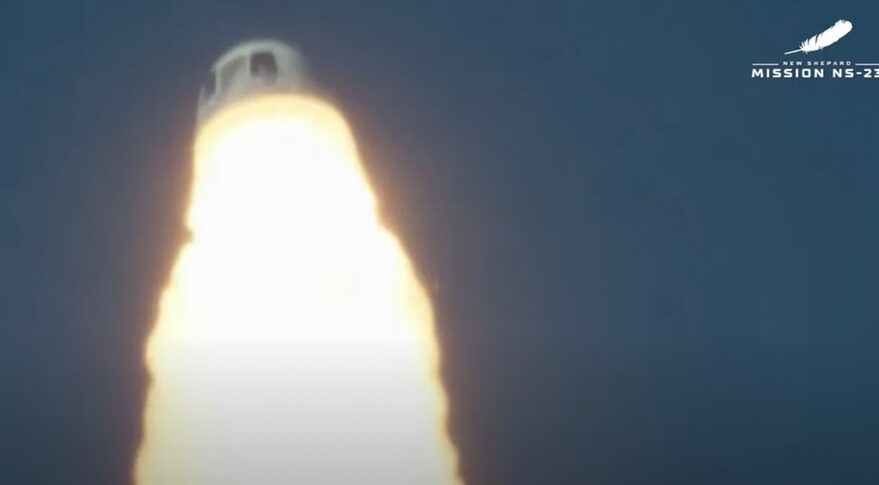
PARIS — Leaders of the House space subcommittee have asked the Federal Aviation Administration for more details on its investigation into a Blue Origin New Shepard launch accident.
In a Sept. 15 letter to Billy Nolen, acting administrator of the FAA, Reps. Don Beyer (D-Va.) and Brian Babin (R-Texas) sought more details into the FAA’s ongoing investigation into the Sept. 12 failure of the New Shepard vehicle on an uncrewed suborbital flight designated NS-23.
They wrote that their interest, not usually seen in other commercial launch failures, stems from the fact that New Shepard also carries people. “On a different day with a different mission, this vehicle’s anomaly could have put human lives in danger,” they wrote. The particular vehicle involved in the failure had only been used for uncrewed flights; a different New Shepard vehicle has flown Blue Origin’s crewed flights since July 2021.
Beyer and Babin, the chair and ranking member, respectively, of the House Science Committee’s space subcommittee, mentioned their responsibility of providing oversight of the FAA’s commercial space transportation office and commercial launch and reentry in general for their desire for more information into the investigation, including, ultimately the root cause and steps to correct the problem that caused it They also asked for a briefing of subcommittee staff within 10 days.
The letter was not the first time Beyer commented on the accident. “Today’s booster failure of NS-23 is a compelling reminder of the risks of spaceflight,” Beyer said in a statement hours after the incident. “As commercial human spaceflight is now a reality, the subcommittee’s work on the safety of commercial human spaceflight is more important than ever.”
Neither the FAA nor Blue Origin have provided more details about the incident, when an apparent problem with the vehicle’s booster triggered the launch escape motor of the capsule, taking it safely away from the booster. The capsule, carrying three dozen payloads that included a number of NASA-sponsored experiments, landed safely under parachutes several minutes later. Blue Origin said the booster was destroyed.
The FAA confirmed Sept. 12 that it was leading the investigation into the accident. That work would have gone to the National Transportation Safety Board, under terms of an agreement the agencies signed Sept. 9, had anyone been killed or seriously injured, or if debris that could have caused death or serious injury fell outside the launch site.
A Blue Origin executive, Jarrett Jones, said at World Satellite Business Week Sept. 13 that it was still “super early” into the investigation. He played down speculation that the failure was linked to an issue with the booster’s BE-3 engine. “It’s a little premature to assume that it was something related to the engine.”